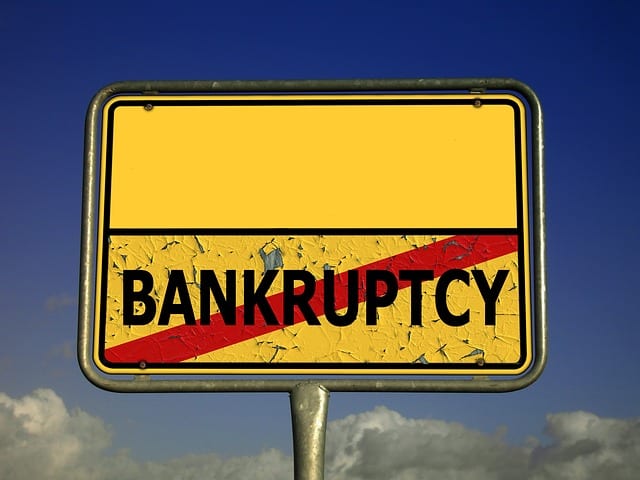
Oct
18
Small Business Owners
5 Crucial Things Small Business Owners Do That Harm Their Businesses!
Statistics show that more than 20 percent of the small businesses do not make it past the first year. More do not make it past three years and very few go past the five-year mark by which time they are considered to be successful businesses.
To be a successful small business owners, you need to do a few things. The most important of them all is to know the pitfalls to avoid so that if possible, you can hand over the business to the next generation.
Just know one thing! All the financial decisions that you make about your business will have an effect. It can be a negative or positive impact. So be keen and safeguard the future of your business.
While there are many mistakes that can ruin your business, some of them regarding marketing on social media, branding and even poor customer care, it is the financial decisions really that can make or break your business. That is why every financial step must be taken with careful and long-term consideration.
Here are a few crucial things that can harm your small business:
- Not depositing cash in the bank
Well, you may think it is a good idea to keep cash in your home, in the piggy bank or something. You may also invest all of your money in inventories.
There are many reasons to not deposit cash. However, this is a temptation that you ought to resist. Always deposit money at the bank. Depositing money in the banks has many advantages. When you need to borrow a business loan in future, you will have to show the financial statement of your business.
You need to establish a money trail. For some financial institutions, having money in the bank is one of the qualifications for getting a loan. The lender will want you to supply your bank statement of the last six months, or for any duration of time. They will be looking to assess the health of your bank account.
When small business owners make a habit of depositing money in the bank, you can start to create a good track record of your cash flow.
Small business owners will be able to establish credit history. You can give your customers the bank account number of the business so that they deposit your payments in the bank account. That way, there will be money trail for lenders to see.
Also, ask your creditors to report every payment that you make to the credit reporting bureaus. That way, you can start building your business’ credit history.
Here are a few reasons why a business bank account is paramount:
- Lets the IRS know that you are running a serious business. If small business owners have a business but have no bank records to show for your business, the IRS thinks you are playing cat and mouse games, and they do not take kindly to such. Serious businesses have serious bank accounts.
Every three years in five years, your federal tax returns should show a profit. If they do not, you will get an IRS audit, and you will not like it.
- Separate business and personal accounts. This is very important for bookkeeping. You want to know how much money you are making and how much you are spending.
In addition, did you know that as long as your business, whether a company, sole proprietorship or partnership is incorporated, the IRS needs small business owners to keep a separate business account.
Personal and business do not go together. For bookkeeping purposes, let whatever is going to the business come from the business account.
- It will be easy for lenders to find your business cash flow track if you keep proper records. You had better believe it, they will want to see your bank statement for the business as well as its cash flow records.
- Filing for bankruptcy for one small risk while it could have been avoided
Bankruptcy is a decision by the court that you are no longer legally liable to pay your debts. Seems like a good way out then, huh?
As a small business owner, do not make the mistake of rushing this direction when it can be avoided. It is very important that you seek any respite from filing for bankruptcy and only do it if it is the last resort.
If your personal assets are at risk, if your business records show that you have been in financial crisis for a long time, well, you may file for bankruptcy.
In many instances though, this decision will sit hard on your business aspirations. It is not the best route to take if you can avoid it.
In some instances, you may be able to continue running your business even after filing for bankruptcy. However, this is rare, so do not bank on it. The best thing is to find out whether you can avoid going the bankruptcy way altogether.
Have you tried a few ways to stay solvent? For example, have you tried consolidating your debt? Have you gone for debt counseling services? Bankruptcy should be the very last option.
The risk involved is great. Your business will no longer be legally responsible after filing for bankruptcy. However, the risk is bigger. You may lose your business for good.
If you file for Chapter 7 bankruptcy for small business, some assets are exempt, but you will still lose many. In that light, it is much better to seek for a way to get out of your debt crisis than writing the entire business off.
If you have a big vision for your business and you have been going through a rough patch in the past couple of years, you will lose the chance to help humanity if you declare bankruptcy.
While filing for small business bankruptcy, you may also be dragged into it and may have to file personal bankruptcy as well.
Consider a sole proprietorship where your business is you. In such case, you cannot file for small business bankruptcy as a separate entity.
You can only file for personal bankruptcy. Good thing though is that you can list some of the business assets as exempt and thus continue running it after filing for bankruptcy.
But still, that muddles up your personal credit history as the BK smudge will stay on your record for close to a decade.
- Failing to file personal and business income tax returns even after extension
Failing to file your personal and business income tax returns on time has many serious consequences.
Here are a few things that can happen to you:
- You will face a penalty, 5 percent of the amount that you owe, counted every month. If you go past the set deadline of April 15, you are liable to pay a penalty of 5 percent.
- If you file your taxes on the deadline, but you owe the government and fail to pay up, you will pay a penalty of between 0.5 and 1 percent.
- If you file late and fail to pay, you will pay a penalty of 5 percent on the unpaid taxes every month you fail to pay it.
Thus, you can see it is much better to file on time even though you may not have the money to pay the taxes. The system is lenient on you.
You can be arrested. If you owe $25,000 and more, the IRS will send you correspondence regarding that debt. If you ignore it, they will send representatives to your place of residence or business to collect the money.
You can be arrested and even go to jail. You can also have your wages garnished or assets seized by the IRS. Two things are inevitable in this world – death and taxes.
Liens – this is just a fancy IRS word for unpaid tax bills. It sits on your business and personal credit history for a long time and many lenders will not touch you even with a ten-foot pole. A tax lien means you are irresponsible, a person who cannot be trusted with debt payment.
In fact, when you approach a lender for a loan, they will want to see your tax return history. If you owe any money to Uncle Sam, you will end up losing much more.
You may not get your refund. If you are not keen about your personal and business taxes, well, you may not know that if your refunds go for three years unclaimed, then you are considered to have forfeited the refunds. And you lose your money.
To avoid that, stay up to date on your business and personal income tax status.
Lastly, make sure you use the correct form to file your business and personal income tax returns. The type of business, or entity, that you run determines the type of form that you should use.
For example:
- Sole proprietors should use form 4868
- Partnership should use form 7004/code 09
- Corporation should use Form 7004 code 25
- LLCs should use form 7004 code 09
- Corporations should use form 7004 code 12
- Using personal credit card for business expenses
All business people are guilty of this mistake at some point of doing business. This is very wrong on many measures.
One of the best ways to start separating personal and business accounts is by using business credit cards for business and personal cards for your personal needs.
As soon as you can, get business credit cards that suit your model of business best. For example, a business card that rewards with flier miles, helps you get rebates on gas is good if you travel a lot.
Start establishing business credit history as soon as you can because you will need it to borrow business loans. You will need both your personal and business credit history for that.
When you go to borrow a business loan, the lenders will want to see the credit history of your business. If you have all along been using your personal credit cards for business, then there will only be personal credit history, but it is your business that needs the loan; not you.
Creating a business checking account will help you keep your personal and business funds separate. You can open the account at your local bank.
Getting business credit cards alone is not enough. You also need to open credit lines with your suppliers and the businesses that you sell to.
The best thing about trade lines/credit is that you are not required to pay immediately. You are allowed 10, 15, 21 days and so on to pay.
Just make sure to pay them with credit cards for business so that the payments can be reported to the credit bureaus.
If a supplier does not offer credit lines to small businesses, you should not do business with them if there are vendors who establish trade lines.
Using personal credit cards for business is going to affect your personal credit a lot. For example, your score will drop a great deal if you max out on the cards. It is better you max out on your business credit cards than personal cards.
Getting business credit cards is good, but it is even better to make payments on time so that you start building your business credit history on good footing. If you make timely payment, you build good credit history and lenders will give you a business loan at favorable terms.
- Waiting too long to apply for a loan
Eventually, small business owners will have to borrow a business loan. It is best to do it when your business is in prime condition.
Think about it this way … a friend borrows money from you to pay back later. When would you be most likely to lend him money? When he is jobless and you are not sure when he will pay you back, or when he is working?
When looking for a business loan, banks and other credit institutions will want to see the bank statements for the business, as well as the cash flow statement and tax payment records. If the business appears to be struggling to stay above water, most likely you will not be advanced the loan.
If you do get the loan even when your business’s cash flow is down, you will get it on tough terms.
Every lender is in business to make money. As long as they want to help your business, their first priority is themselves. So the first thing they want to establish is whether you are creditworthy.
If a cash flow statement shows just expenditures without income, then that is an indication that in the distant or near future, you could be headed to bankruptcy. And no lender will want to touch you.
When business is low, that is not the proper time for small business owners to go looking for a business loan. If you go during such times, chances are high you will not get it.
If business is booming, you can pay bills on time, and (most importantly) you have some money in the bank, that is the proper time to ask for a loan. In the first place, you already have a bank account. Make sure that about 4 to 5 months prior to borrowing a loan, you have been keeping some money in the account.
But not many businesspeople understand this. Many wait until the last minute when their business is almost beyond salvage. That is when they go seeking loans. Then the lender looks at the bank statement and cash flow statement, and you are turned away.
Small business owners can only expand when business is good
And that is why this is the best time to borrow a loan! When your products are flying off the shelves that is the right time to expand, to open new branches and employ more people. Thus, when small business owners approach a lender, you will be seeking a loan to support a business that is thriving very well.
When small business owners borrow a loan during the good times, you get it at better interest rates. Why? You have many options. Lenders know you are creditworthy and are falling over themselves (not literary) to advance you a business loan. You can be able to choose the one with the friendliest terms.
If a small business is almost going belly up, small business owners do not have many choices, maybe one or two non-mainstream lenders will be willing to bail you out, at very high interest rates. Then, you are borrowing to extend a leash of life to the business, not to expand.


